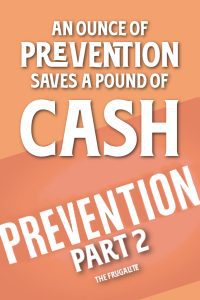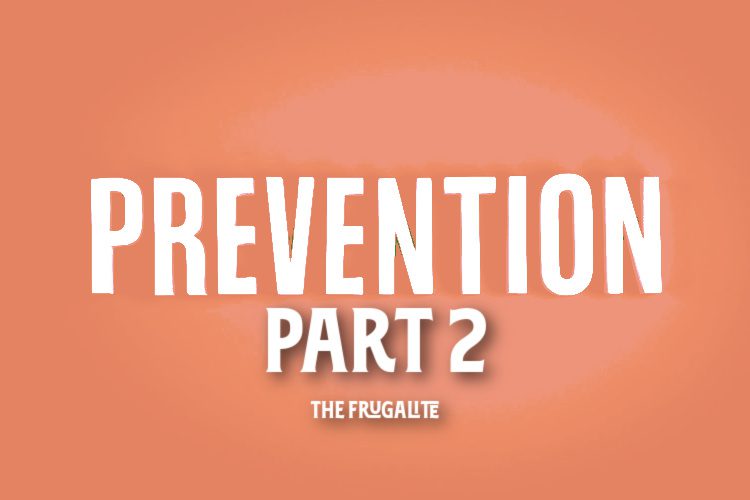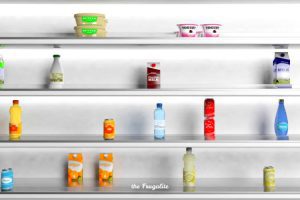(Psst: The FTC wants me to remind you that this website contains affiliate links. That means if you make a purchase from a link you click on, I might receive a small commission. This does not increase the price you’ll pay for that item nor does it decrease the awesomeness of the item. ~ Daisy)
By the author of the FREE online course Growing Self-Sufficiency: The Whole Picture
Due to popular demand, this is the second in a series (Check out part 1 here!). The old saying goes, “An ounce of prevention is worth a pound of cure.” When I looked around my life in the eco-cabin and started thinking about how many things I do to try and prevent problems, I realized that there are a lot of savings to be had. I do think I’m saving a pound of cash by looking around and using my noggin’.
While sometimes it is admittedly difficult to calculate the exact amount of money saved from things that don’t actually happen, I hope you will still see my point. If you get some inspiration and are able to share your own “ounces of prevention” with the Frugalite community, all the better!
You Are What You Eat
If you have ever had a bad case of food poisoning, you will know it is not joke. In my kitchen, I take many easy steps to prevent food poisoning, which can cost a trip to the hospital and days off of work in its worse versions. As a single Frugalite cooking for one, I generally like to make large batches of my favorite dishes. When I made a nice soup the other night, however, I made sure to use a cold water bath in my sink to lower the temperature before storing the soup in the fridge.
Having worked in food service in a hospital, we were trained that food should either be hot or cold and nothing in between. Similarly, I am very careful to prevent contamination in my cooking. If I touch a potential source of contamination, such as my face, I wash my hands. Raw meat and cooked meat are kept separate. Rather than trust my expensive stew will be good in five days, I would probably freeze a couple of portions, just to be on the safe side. I have an aunt who leaves cooked meat out on her counter for hours after a meal. Why take the chance?
Caring for My Car
In recent years, the winter temperatures have been varying widely. When we were facing a major drop last week over more than 25 degrees Fahrenheit, I made sure to fill up my tank. It was less than half full. I also popped out to my shed and grabbed a bottle of gas line anti-freeze. Before I went to bed that night, I made sure it was in my gas tank. I even ran the car a bit to hopefully get it circulating.
Although I’m clearly not a mechanic, I do what I can to prevent problems rather than waiting for them to happen. So, during our Canadian winters, I always have my eye on the weather forecast, doing what I can to plan and prevent ahead of time.
No Dull Knives!
In my opinion, a dull kitchen knife is far more dangerous than a sharp one. Add to that cheap, flimsy, damaged kitchen knives, and you have a recipe for disaster. You really don’t want the cost of an emergency visit, do you? So, I don’t mind spending a few bucks (and literally, that is all it is) to have my knives regularly sharpened by a professional.
In between sharpenings, I have a honing rod that I use to maintain that professional edge. It doesn’t hurt to have good knives, too. Mine are steel-forged super high-quality knives made in Europe. Did I pay full retail for them? Heck no! Got a set for next to nothing at a local thrift shop. Having worked in a hospital kitchen, I have also been trained in how to operate my knives safely, such as making sure the vegetable I am chopping is sitting on a flat side.
Maintaining Weight in Later Years
Now that I’m getting up into my fifties, I can’t eat what I like anymore. Ah, who cares? Why not have that piece of pie anyway? Well, for me, having seen one grandmother and multiple aunts end up with serious health consequences

due to being overweight, the luster kind of wore off that piece of pie. As I have seen the lives of these people I loved be
literally shortened by complications from being overweight, I am committed to staying trim as I age. Is it fun? Nope.
Do I wish I could eat like I did in my twenties? Of course.
While this change has been difficult, I continue to do my best to trim down and maintain my weight with healthy eating. At least for my closely related family members (so my own genetics), the consequences were dire. Occasional treats help, but they can’t be every week. I am finding that it’s a new way of eating, and I am still adapting to it. However, I am proud of the direction I am heading, doing my best to prevent problems before they occur.
The Magic of Sleep!
In this high-pressure society, where time is at a premium, it is easy to cut back on sleep. Just another hour of gaming! Just another episode of Supernatural! These kinds of habits are a direct consequence of being under a lot of stress. By that, I mean having an overwhelming feeling of needing to zone out and unwind.
Although it isn’t always easy, I make a big effort to maintain good sleep hygiene and get lots of sleep every night. It’s true: I am one of those people who doesn’t do well with even a couple of hours less. I think this was one of my habits that allowed me to work so hard on the eco-cabin build for so many years. At least for me, sleep is the magic elixir of health. While I recognize that there are times in life where a good night’s sleep may be hard to come by, like when children are young, recognizing its importance and placing a priority on it can help.
Why Not Save That Pound of Cash?
There are many free and low-cost habits that can prevent future problems. Could you see yourself trying any of the preventative tips offered here? Do you have your own “ounce of prevention” that you can share with us? Please tell us in the comments below.
About Colette
Colette is passionate about sharing her knowledge of thrifty living and self-sufficiency. She has developed her skills in self-reliance living in the suburbs, the city, and more recently, on her own Half-Acre Homestead. Colette lived five years completely off-grid and without running water in an eight by 24 foot tiny home while designing and building her own 18 by 24-foot eco-cabin. Her website, Half Acre Homestead is attracting followers from around the world who want to become more self-sufficient. Colette invites you to stop by the Homestead and check out all of the great resources including the practical How To Guides, A Tiny Home Resource Center and her organic gardening stories on her blog. She shares her wholistic model (body/mind/spirit) for achieving self-sufficiency in her Free Course, “Growing Self-Sufficiency: The Whole Picture.” Stop by the Homestead today to register free of charge!











10 thoughts on “An Ounce of Prevention Saves a Pound of Cash: Part 2”
Growing up on a farm I learned how to sharpen all kinds of knives long ago with sharpening stones. That was well before the sharpeners (with both coarse and fine sharpening slots) became widely available at retail stores. Most knives I finish with the “fine” sharpener slot but I learned the hard way not to use an ultra-sharp sharpener slot on my steel Chinese 7-1/2 by 3-1/8“ #4 knife (for which I caught holy heck on TOP for calling it a cleaver). Besides using it for thin slicing veggies … it also makes a handy carrying tool to move a whole pile of freshly sliced goodies over to my cooking steamer. I discovered the hard way that an utlra-sharp edge on it also had a bad habit of snagging on my hand’s skin during that carrying process. So when I backed off from that ultra-sharp edge a wee bit that eliminated the snagging problem but still worked just fine for veggie slicing.
The yellow Heet (auto gas line anti-freeze) linked above (from Amazon but readily available in Walmart stores) has other non-advertised uses. Since Walmart told me they no longer carry denatured alcohol anywhere else but now online only … a lot of people use Yellow Heet as a backup fuel in their multi-fuel capable camp or back-packing stoves for their alcohol burners (Trangia or various Chinese knockoff types). And once the Yellow Heet bottle has been emptied … it is handy to keep as a convenient carrying and pouring size bottle for a fresh supply of denatured alcohol from your local big box stores like Home Depot or Lowes.
–Lewis
Hi Lewis, Thanks so much! As I rely on my local hardware store for sharpening, your own experience with this is a great addition to the article. I am not familiar with Yellow Heet, but will look into this, as I own a little Trangia. Wishing you the best this spring!!!
I definitely agree with the need for adequate sleep. For several years I was the caregiver for my late husband. He was a restless sleeper who needed attention often in the middle of the night. As a result I snatched naps during the day to get my needed sleep. I’m gradually getting back to sleeping the needed 8 hours consecutively.
I eat a very healthy diet. I discovered long ago that I eat so few extremely sweet things that that sort of thing now seems rather sickening.
I’m very careful to protect any sensitive plants during very cold weather. Hoses and other garden equipment are carefully stored during cold weather.
By taking good care of my clothes I can get a lot of wear out of them. I sew buttons back on, sew up loose seams, and mend as needed. Things that are completely worn out become rags as do ragged towels and sheets.
All of these are small things that add up to a lot of savings.
Hi Mary, Thank you for sharing your own experience regarding sleep. I am sorry for your loss of your husband. I hope that your sleep will return to 8 hours soon. You have shared some helpful tips about healthy eating and clothing care that I’m sure are saving you a bundle. Much appreciated!
Hello, Colette. Your phrase “… I own a little Trangia…” caught my eye. Having some experience with multiple military and civilian Trangias (and Asian knockoffs) I firmly believe they should be owned at least in pairs When one is being used for cooking and the fuel burns out (when you still need some continuing heat) … you have to wait until that burner cools down before adding replacement fuel — so you don’t have a sudden and dangerous flare-up. That’s a nuisance to wait unless you don’t mind losing some cooking time as well while you wait for that one burner to cool down. The ideal solution is to remove the burned out Trangia (or knock-off) with some steel tongs (so you don’t burn your fingers, and immediately replace it another identical fully fueled burner you can light up right away — while not losing any cooking time.
You always want to remember that high heat can destroy the black rubber O-ring inside the burner’s lid … so if you want to use that lid to shut down an active flame … you must temporarily remove that O-ring from inside the lid so the heat doesn’t ruin it. That way you can preserve the O-ring’s original purpose to keep a fully fueled (but not lit) burner from leaking all over while in storage or while traveling.
The military Trangias I have did not come with a simmer ring but all my civilian ones (whether Trangia branded or knockoffs) do have simmer rings. So if your cooking benefits by the ability to simmer … make sure the burners you acquire have simmer rings with them … unless you have the ability to hand-make an add-on simmer ring.
The Trangia burners (and knockoffs) are so handy since they work in many kinds of camp stoves, twig stoves, rocket stoves, Volcano stoves (even including my rare Volcano Jr) as long as one can find metal spacer pads underneath (I use metal can lids, cut pieces of tin cans, eg) so the burner’s flame base distance to the cookpot’s bottom will be close to that ideal 1.5 to 1.75 inch figure — depending on whose online posting about that you believe).
This is all in pursuit of controlling costs, getting the job done, and preventing injuries in the process.
–Lewis
Hi Lewis, Wow. Completely speechless. I literally just learned many important things about my little stove, including the need to get a second one! I am going to need to take it out and have a look at it. I have been homesteading and busy building my eco-cabin. In this, I am publicly admitting that I haven’t taken the time to even practice making coffee with it. Perhaps the embarrassment of it all will motivate me to do my trial of walking with my BOB an hour to my friend’s place and make him coffee with my little stove. I will (humbly) keep you posted on it all! In gratitude, Colette
My husband agrees with you about dull knives. But after 50 years of cooking, I’ve been cut much worse with a sharp knife than a dull one. I don’t like dull knives; they’re hard to use. But I don’t like or trust a really sharp one.
Hi Carla, I appreciate your thoughts on the knives. I know that people vary in their comfort level with the sharp ones. I was aghast at the state of her knives when I visited my Mom a while back. I recognized one from my childhood days with a broken handle. I felt these were dangerous, but she was comfortable using them.
I think what helped me be comfortable with very sharp knives was likely my training in the hospital food service.
Seeing my dangerous ways, a chef took me aside one day and showed me how to safely cut the edge off of something to make a flat side to set on the cutting board for cutting. As well, he showed me how to hold something like an onion by bracing with my fingertips, rather than holding with the pads of my fingers. What is the benefit of that, you might ask? If you hold your onion by bracing with your fingertips, if the knife slips or gets too close, your fingernails generally protect your fingertips. I can’t count how many times a bad cut was prevented by my sturdy fingernails deflecting the knife edge. Or, at the very worst, the knife might cut into the nail a bit. Wishing that every chop you make is a safe one! Thanks so much for sharing your thoughts.
In my family we never let the gas tank on our cars get below half full. My son-in-law thought this was ridiculous until the family made a trip to a family reunion in western Texas. We insisted on a gas fill up at a certain town. As he later told friends A person could run out of gas and not see another car to get help for days. Maybe it wouldn’t have been that bad but a distance of over a hundred miles passed with no stations. He then jointed the family in never getting below a half full tank.
Hi Mary, Yes, that’s another great reason to always top up your tank. A hundred miles without a station! WOW! I think I’d better go top up my tank. Wishing you a full tank always and a great summer! Thanks so much for sharing.